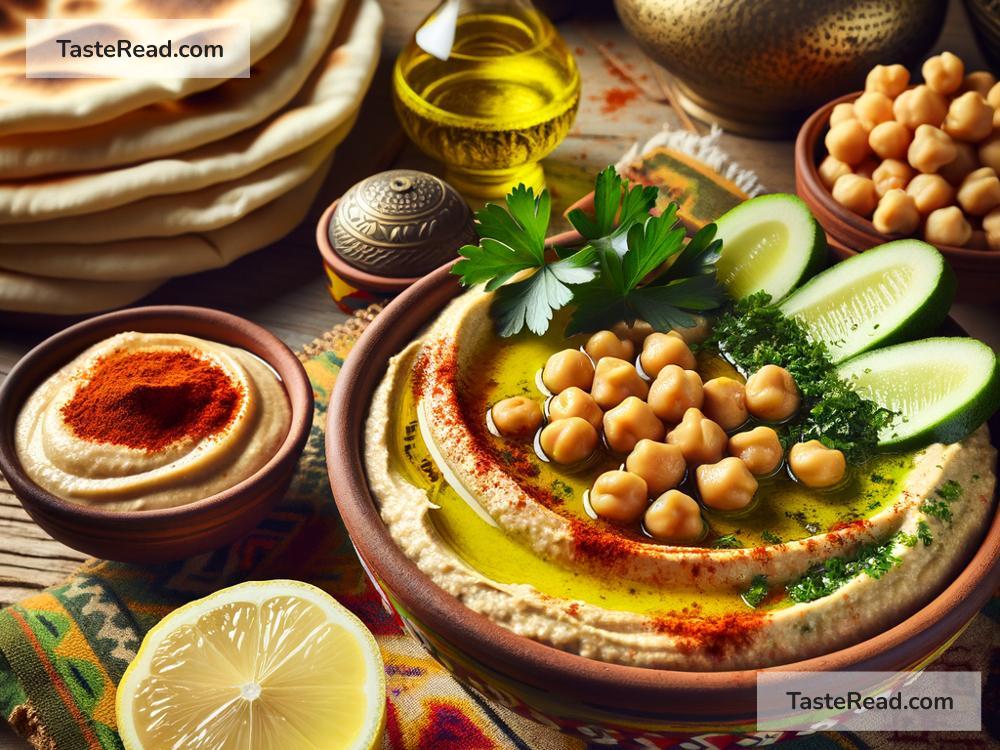The Cultural Significance of Lebanese Hummus
Hummus, a creamy and flavorful dish made from chickpeas, tahini, lemon juice, garlic, and olive oil, is loved around the world today. However, its roots go deep into the heart of Middle Eastern cuisine, particularly in Lebanon. Lebanese hummus holds a special place not just as food, but as a cultural icon that reflects the country’s history, traditions, and communal spirit. Let’s explore why hummus is more than just a dish in Lebanon.
Hummus: A Dish With History
While the exact origins of hummus are debated, hummus has been a staple in Lebanese cuisine for centuries. Some food historians believe that hummus dates back to ancient times, with references in Middle Eastern texts that point to the use of chickpeas and tahini. Over the years, it became central to the culinary traditions of Lebanon and other neighboring countries.
The Lebanese version of hummus emphasizes fresh ingredients, simplicity, and balance. It’s a dish made with care to highlight natural flavors and is often served as part of a mezze — a collection of small dishes meant for sharing.
More Than Just Food
In Lebanon, hummus isn’t just about eating; it’s about connection. Food plays a crucial role in Lebanese culture, and meals are often celebratory events where family and friends gather. Hummus, as one of the stars of mezze, brings people together in a shared experience. Scooping hummus with warm pita bread or crunchy vegetables isn’t just a matter of nourishment; it’s a social ritual. Conversations flow, laughter fills the air, and the act of sharing hummus becomes a way of bonding with others.
A Symbol of Hospitality
In Lebanese culture, hospitality is a cornerstone of daily life. Guests are treated with warmth, and offering food is a deeply ingrained tradition. Hummus often appears on tables as a gesture of welcome. Its simplicity and versatility make it a perfect addition to almost any meal, whether you’re serving a quick lunch or an elaborate feast. By presenting hummus to visitors, a host conveys a sense of generosity and care, making everyone feel at home.
Ties to Identity
For many Lebanese people, hummus isn’t just a dish; it’s a piece of their identity. It represents the country’s rich culinary heritage and a connection to the land. The ingredients used to make hummus, like chickpeas and olive oil, are staples of Lebanese agriculture that have been cultivated for generations. It’s a dish rooted in the earth, carrying the flavors of Lebanon’s fertile valleys and Mediterranean coast.
Hummus has also become an emblem in international food debates. While several countries in the Middle East claim hummus as part of their culinary traditions, Lebanon has proudly championed its version, emphasizing the authenticity and skill that go into perfecting the dish. There’s even a friendly rivalry known as the “hummus wars,” where countries compete for the title of making the best hummus or claiming hummus as their own.
A Healthful Tradition
Lebanese hummus reflects another aspect of the culture: a commitment to healthy, balanced eating. Lebanese cuisine often focuses on fresh ingredients and dishes that are both nutritious and delicious. Hummus is no exception, offering a wealth of health benefits. Chickpeas are rich in protein and fiber, while tahini provides healthy fats. The olive oil used in hummus is a cornerstone of the Mediterranean diet and is packed with antioxidants.
This focus on eating well goes beyond nourishment — it’s part of a broader lifestyle in Lebanon that promotes physical and emotional well-being. Hummus embodies that lifestyle, merging flavor and health seamlessly.
Global Recognition
What makes Lebanese hummus even more special is its global appeal. While it started as a dish with Middle Eastern origins, hummus has become loved worldwide. Lebanese hummus, in particular, stands out for its authenticity and emphasis on fresh ingredients. Restaurants and markets around the globe often make sure to reference Lebanese recipes when they serve hummus because of its reputation for quality.
This widespread popularity hasn’t diminished the cultural significance of hummus in Lebanon. Instead, it has allowed Lebanese people to showcase their traditions on an international stage, highlighting the warmth and richness of their culture.
Preserving Traditions Through Food
Lebanese hummus is more than just a recipe; it’s a way to preserve heritage. As modern life continues to evolve and global food trends emerge, certain traditional practices can sometimes fade. However, hummus remains a constant presence in Lebanese homes, restaurants, and celebrations. By continuing to make and share hummus, Lebanese people keep their connection to their culture alive, passing down values of hospitality, community, and craftsmanship from one generation to the next.
Conclusion
The cultural significance of Lebanese hummus goes far beyond its creamy texture and delicious flavor. It’s a dish that tells a story — of history, family, hospitality, and identity. Whether you’re enjoying it in Beirut or in a Lebanese restaurant halfway across the world, every bite of hummus carries the essence of Lebanon’s rich and vibrant culture.
So, the next time you dip into hummus, take a moment to reflect on where it comes from and the traditions it represents. In Lebanon, hummus isn’t just food; it’s a celebration of life and togetherness. And that’s what makes it truly special.


